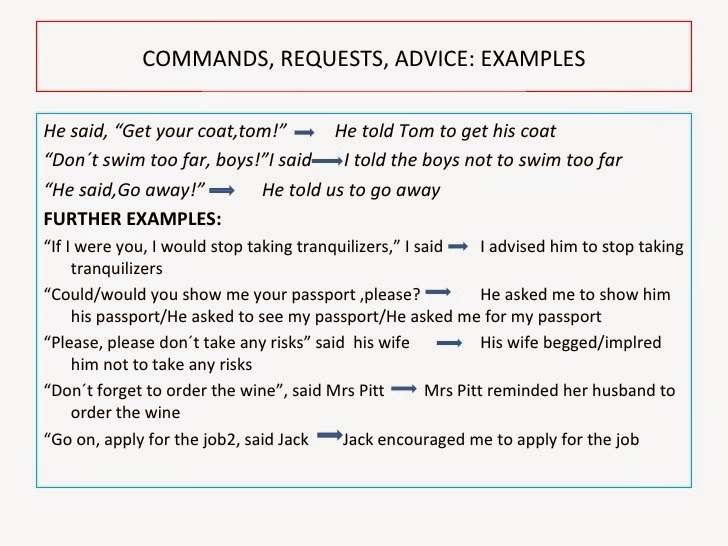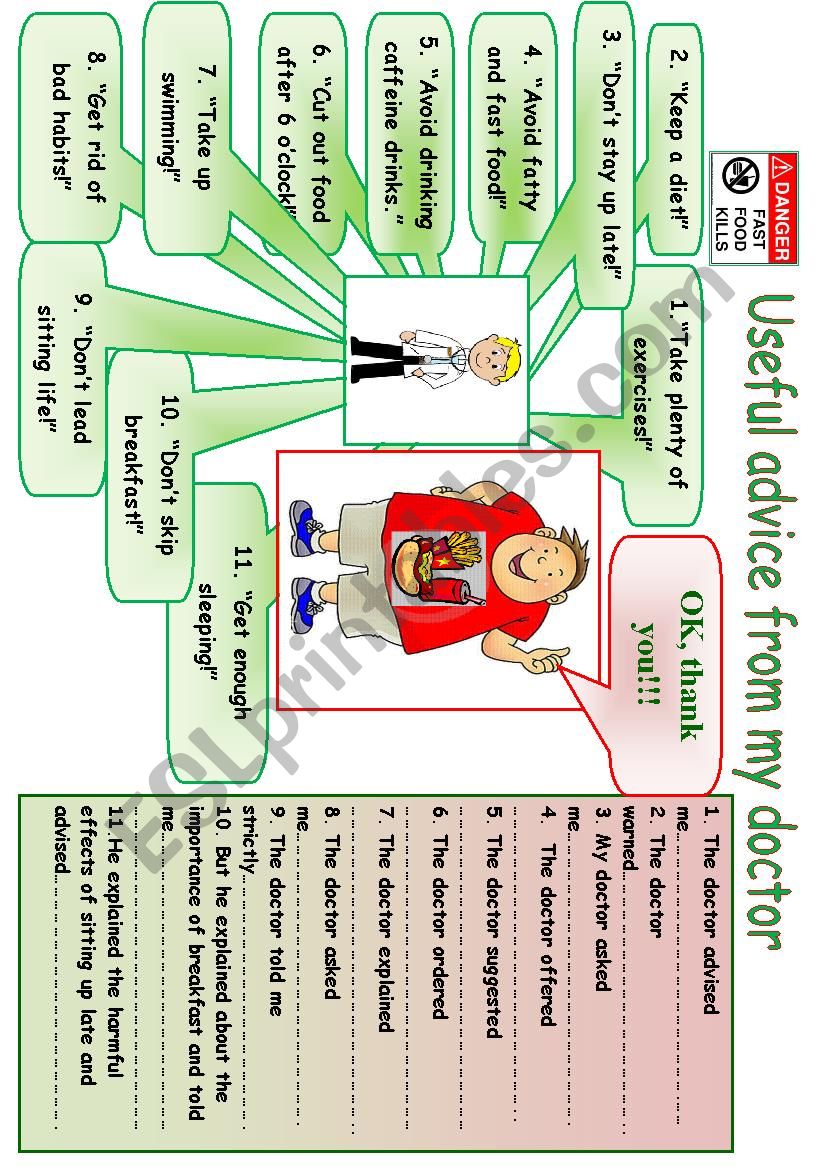
Some, but not all, modal verbs ‘shift back’ in time and change in indirect speech.

(It is still true that his brother works for an Italian company.) He told me his brother works for an Italian company. The past perfect does not shift back and we don’t need to change the tense in indirect speech if what a person said is still true or relevant or has not happened yet: ‘Backshift’ refers to the changes we make to the original verbs in indirect speech because time has passed between the moment of speaking and the time of the report. (original statement: ‘You must not enter the area.’) The guard warned us not to enter the area.

(original statement: ‘You should wait till the following day.’) They advised me to wait till the following day. We also use a to-infinitive clause in indirect reports with other verbs that mean wanting or getting people to do something, for example, advise, encourage, warn: (original command: ‘Sit down and stop interrupting!’) The chairperson told him to sit down and to stop interrupting. The General ordered the troops to advance. Indirect reports of commands consist of a reporting clause, and a reported clause beginning with a to-infinitive: Not: The teacher asked them how did they want to do the activity? (original question: ‘How do you want to do the activity?’) The teacher asked them how they wanted to do the activity. Not: I asked her where was the bus station? (original question: ‘Where is the bus station?’) I asked her when it had happened (original question: ‘When did it happen?’). We also use statement word order (subject + verb) with when, where, why and how: (original question: ‘What are you doing?’) The reported clause is in statement form (subject + verb), not question form: ( what is the object of cost original question: ‘What will the repairs cost?’) ( who is the subject of came original question: ‘Who came to meet you at the airport?’) I asked them who came to meet them at the airport. The reported clause is in statement form (subject + verb), not question form. Indirect reports of yes-no questions and questions with or consist of a reporting clause and a reported clause introduced by if or whether. Indirect speech: reporting questions Reporting yes-no questions and alternative questions ( that-clause without that) (or I told my wife that I didn’t want a party on my 50th birthday.)

I told my wife I didn’t want a party on my 50th birthday. (The pilot’s words were: ‘The weather was extremely bad as the plane came in to land.’) The pilot commented that the weather had been extremely bad as the plane came in to land. We often omit that, especially in informal situations: Example for indirect speech: Indirect reports of statements consist of a reporting clause and a that-clause. The nurse asked Joel if/whether he was ready. Examples of indirect speech and direct speech


 0 kommentar(er)
0 kommentar(er)
